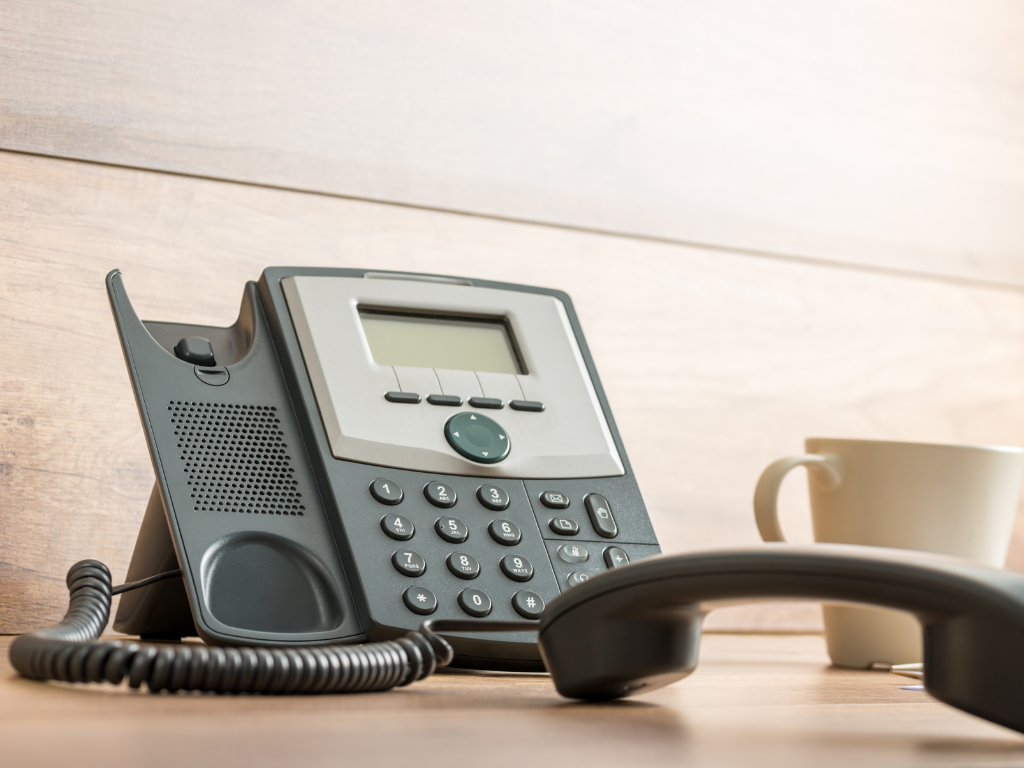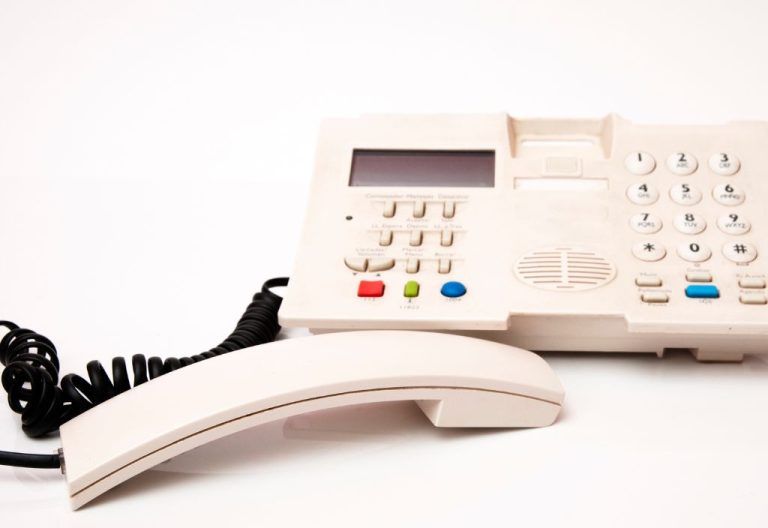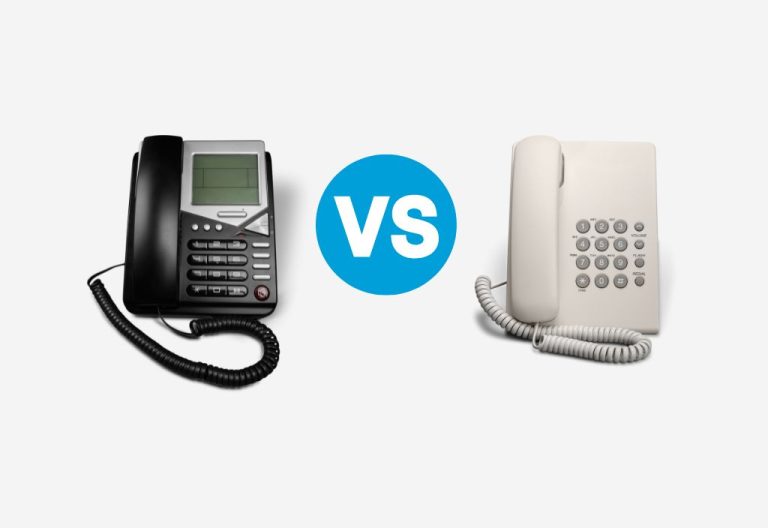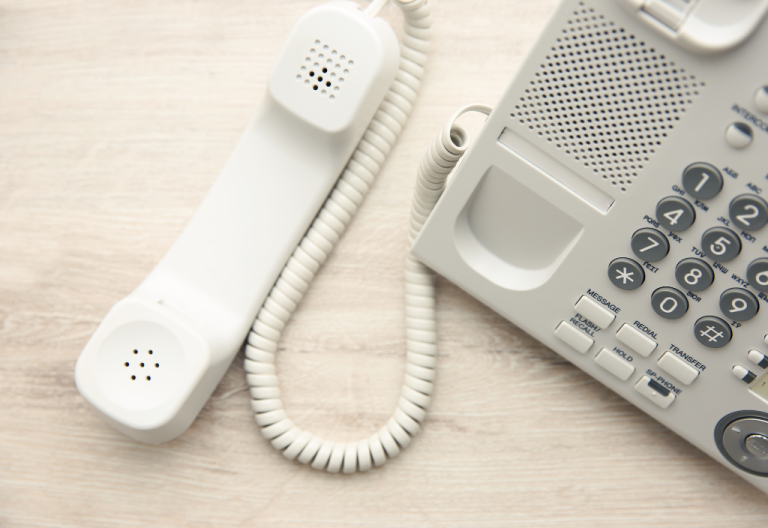Almost every business today uses mobile phones or VoIP to make calls. Yet, traditional landlines are still known to be reliable, especially as a backup device for power interruptions.
If you’re wondering how to get a landline phone without internet, keep reading to discover your options.

Understanding Traditional Landline Phone Service
Landlines have supported businesses for decades, providing a reliable, high-quality voice service long before mobile and internet-based alternatives became popular. They work by converting analog signals to electric waves transmitted using copper wires.
Landlines offer consistent call quality, security, and dependable connectivity. They also work even during power outages, making them ideal for businesses in critical industries like healthcare, emergency services, and financial institutions.
Additionally, businesses in rural areas with weak cellular or broadband depend on landlines as their primary communication tool.
While the future is clearly moving toward digital and wireless solutions, traditional landlines still serve a niche role where stability, security, and accessibility are top priorities.
2025 Best Options for Landlines Without Internet
With the internet becoming integral to daily lives, major telecom companies have bundled internet services with their landline plans. New landline plans also rely on the Internet to work.
But can you still get a landline phone without internet access? Yes, it’s possible. Some companies still offer phone service without internet. Here are your best choices:
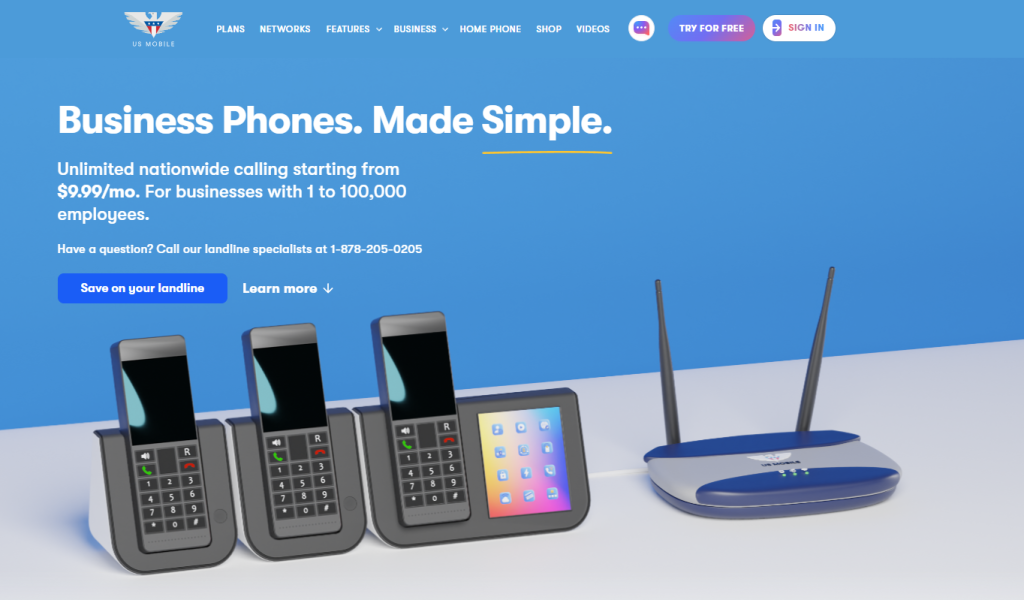
1. US Mobile
US Mobile offers the lowest cost for a landline without internet. Starting at $9.99 monthly, including taxes, you get access to unlimited nationwide calls with crystal-clear voice communications.
You can also connect multiple handsets to one phone number and enjoy free business features like spam blocking and usage analytics. To get started, you must purchase their phone base, which costs $110.00 (one-time fee).
Features:
- Unlimited nationwide calling
- International calls to 200+ destinations
- 24/7 human support
- Voicemail, caller ID, etc.
Cost: $9.99 per month on an annual plan; $12.99 per month on a monthly plan
2. Community Phone
Community Phone is a great landline option for those without internet access. It offers unlimited local and long-distance calls, clear quality, and a quick setup. You can also keep your existing number or get a new one.
When you sign up, you get a Community Phone device, which you plug into an outlet and connect to your existing landline. The device is equipped with industrial-graded antennas that connect to nearby cell towers. It has a built-in backup battery to keep it running even during power outages.
Features:
- Spam call blocking
- Cell-phone call forwarding
- Voicemail transcription
- SMS features
- Memorable numbers
Cost: Their plans start at $39.99 monthly and come with a 3-year price lock, so you know your rates won’t suddenly go up.
3. Century Link
If you’re still looking for a traditional analog landline, Century Link offers one without requiring you to subscribe to an internet bundle. However, a basic line costs $50 per month, so be ready to pay more for the service.
Calling international numbers will also cost an extra $6 per month plus per-minute charges that vary depending on the day, time, and country. Additionally, since this uses a copper line and the copper network is being retired, it’s possible the landline won’t be supported in the future.
Features:
- Caller ID
- Call waiting
- Voicemail
- Three-way calling
- Last call return
Cost: $50 per month for unlimited nationwide calling; $30 per month if you have the CyberLink Fiber Internet plan. Long-distance calls are charged per minute.
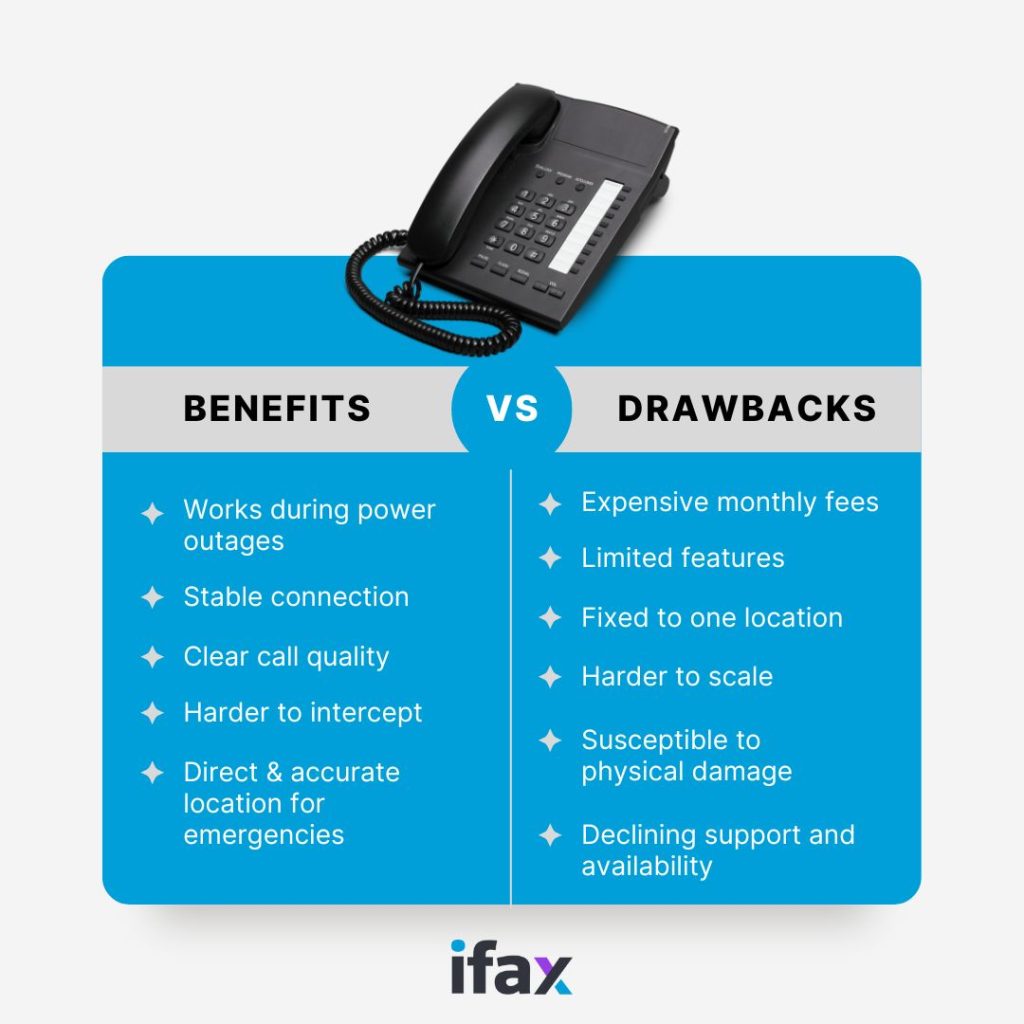
Benefits of Traditional Landline Phone Service
Despite mobile and VoIP phones’ popularity, many businesses still use traditional landlines as a backup system. Here’s why:
- Better reliability: Landlines provide a stable and consistent connection, unaffected by issues like weak mobile signals or internet outages. Unlike mobile phones, landlines don’t require charging, ensuring they are always available for use.
- Clearer call quality: Landlines typically offer clearer audio quality with minimal interference or dropped calls.
- Emergency access: Unlike mobile phones, which may have location-tracking limitations, landlines provide a direct and accurate location for emergency services (911 in the U.S.).
- Security and privacy: Landline calls are generally harder to intercept than mobile or internet-based calls, offering better security.
- Supports other devices: Some security systems, fax machines, and medical alert systems rely on landline connections to function properly.
Drawbacks of Traditional Landline Services
Unfortunately, businesses that insist on traditional landlines face several challenges as technology improves. This is why many are switching to mobile phones or VoIP. Here are some of the main disadvantages:
- High costs: Landline services are expensive, especially for long-distance and international calls. Businesses are also charged extra for maintenance and additional infrastructure.
- Limited features: Traditional landlines lack modern features like video calls, instant messaging, call analytics, and remote access that VoIP and mobile services offer. You can’t integrate them with business tools like CRM or cloud-based systems.
- Inflexible: Landlines are tied to a physical location, making it inconvenient for businesses with remote or mobile workers. Unlike mobile phones, landlines require users to stay in one place to answer calls. You can’t take calls outside the office without call forwarding (which may cost extra). This makes landlines unsuitable for modern businesses with remote or hybrid work setups.
- Susceptible to physical damage: Traditional landlines can be affected by physical issues, such as damaged phone lines caused by weather, construction, or accidents. Repair and maintenance of copper lines are slow and expensive.
- Less scalability for businesses: Expanding a landline system requires additional physical lines and hardware, making it costly and time-consuming. VoIP systems, on the other hand, allow easy expansion with software-based solutions.
- Declining support and availability: Many telecom providers are phasing out traditional landline services in favor of VoIP, and fewer technicians specialize in maintaining landline infrastructure.

The Impending Copper Network Switch-Off
Unfortunately, landline services are gradually being phased out as telecom companies shift toward more modern digital infrastructure. The decline is largely due to the aging copper-based networks, which are expensive to maintain and less efficient than fiber-optic and wireless technologies.
Many providers are actively retiring their traditional landline services and replacing them with VoIP (Voice over Internet Protocol) or wireless-based solutions, offering more features at lower costs.
Landlines may offer a reliable backup, but their rising costs and impending obsolescence should make you reconsider better alternatives.
Read Further: Understanding the Impact of Copper Switch-off
Why Digital Phone and Faxing Solutions Are the Better Choice
Traditional landlines and fax machines are rapidly becoming obsolete. Digital phone and faxing solutions have become the smarter, more reliable alternative because they’re flexible, cost-effective, and packed with modern features that outdated systems can’t match.
With VoIP systems, you can enjoy:
- lower costs than traditional landlines, with lower monthly rates and minimal setup costs.
- advanced features like voicemail-to-email, call forwarding, auto-attendants, and cloud-based faxing for seamless communication
- scalability so you can easily add or remove lines without expensive infrastructure changes
- mobility and remote access for making and receiving calls from anywhere using a mobile device or laptop
As copper-based networks fade out, digital solutions offer more reliable services. iFax delivers secure and timely internet fax solutions that seamlessly integrates with existing business workflow, ensuring effortless document transmission from any device. You eliminate the need for bulky fax machines and phone lines while enjoying advanced faxing capabilities like fax broadcasting and scheduling.
Streamline operations by switching to VoIP and online fax services. Start a free trial of iFax today.



